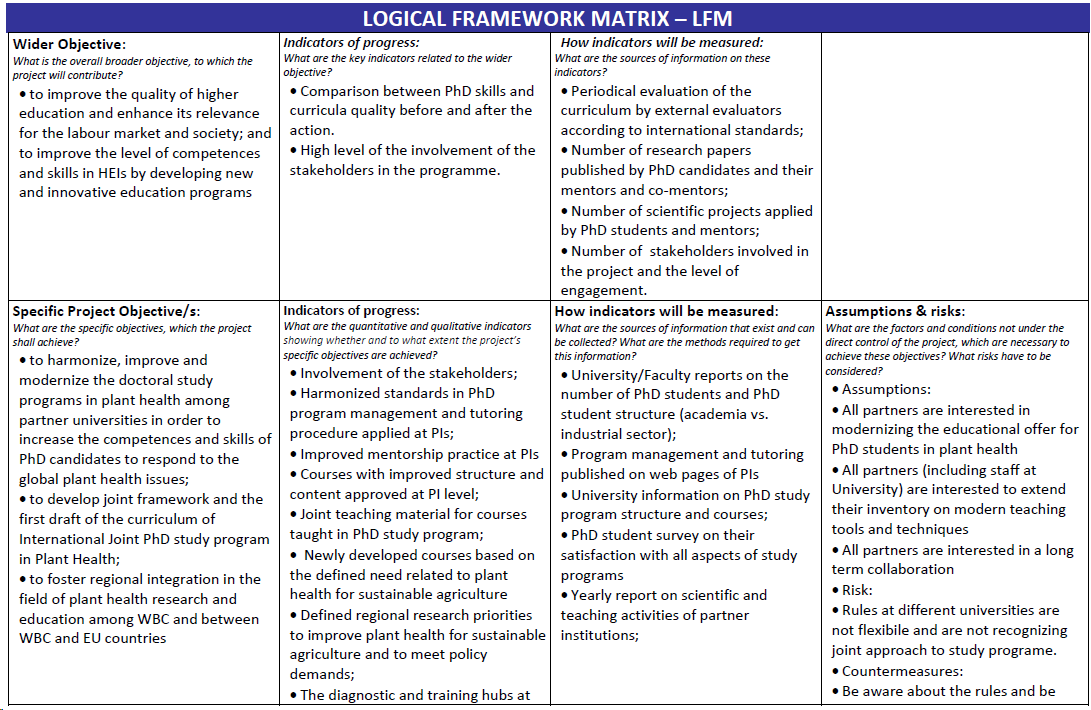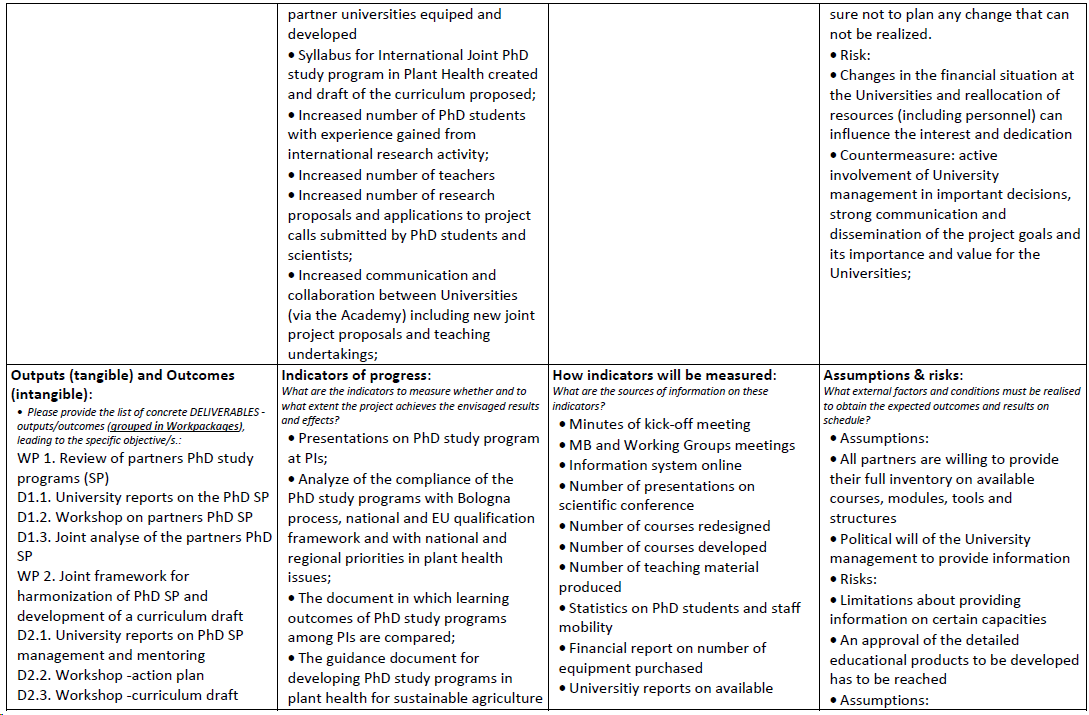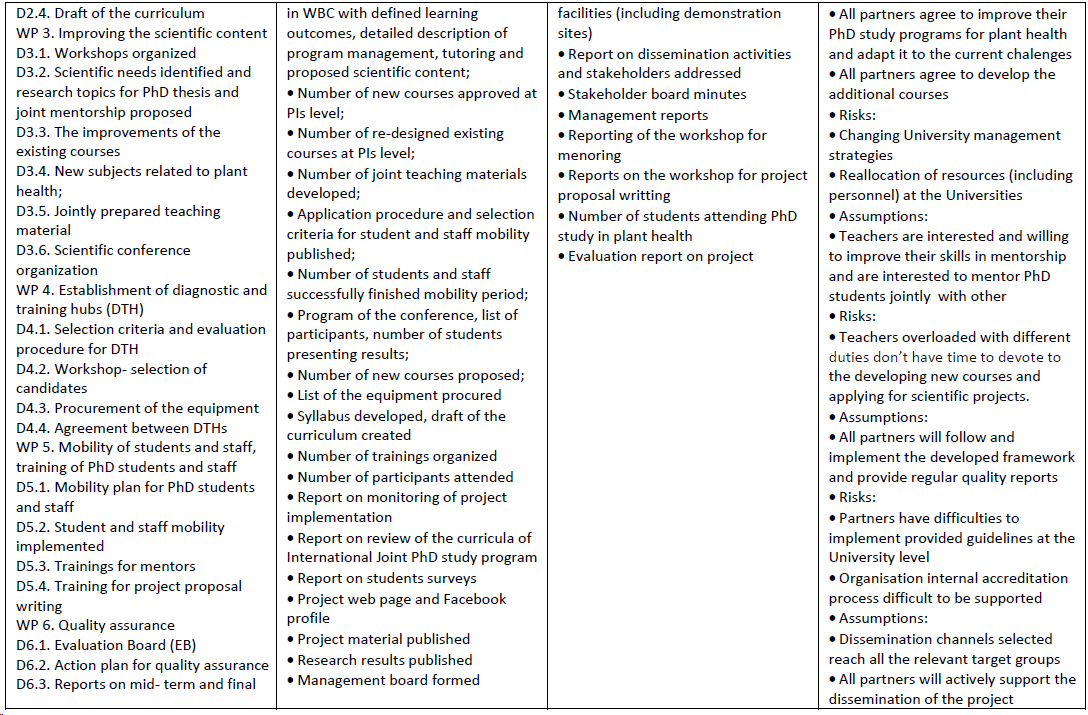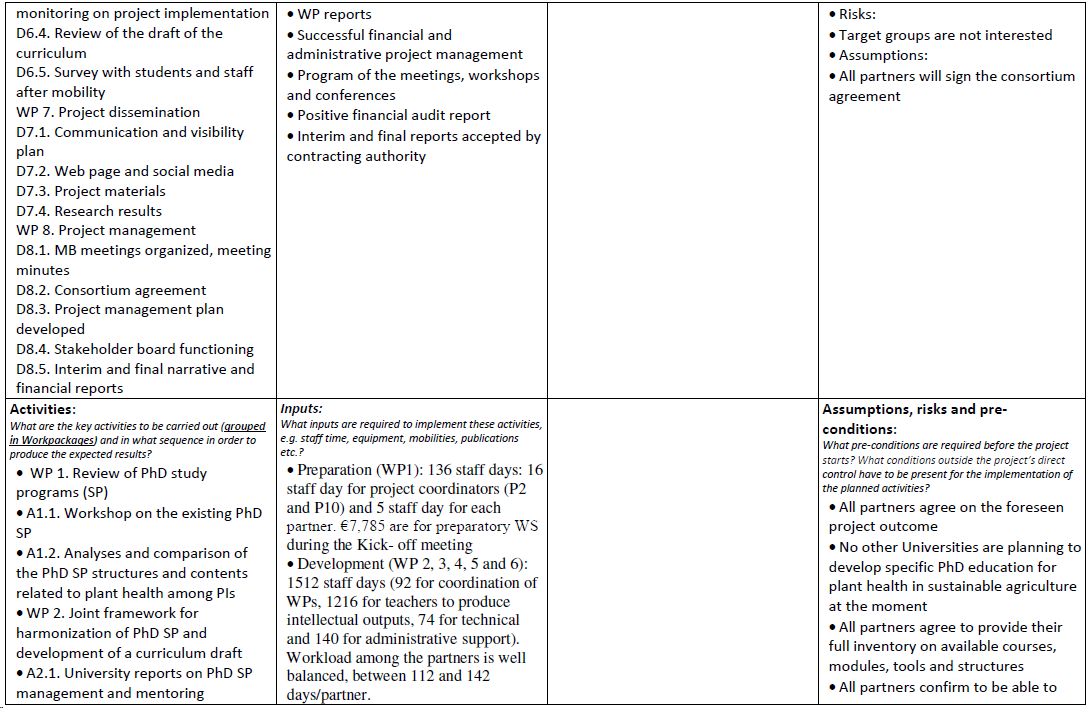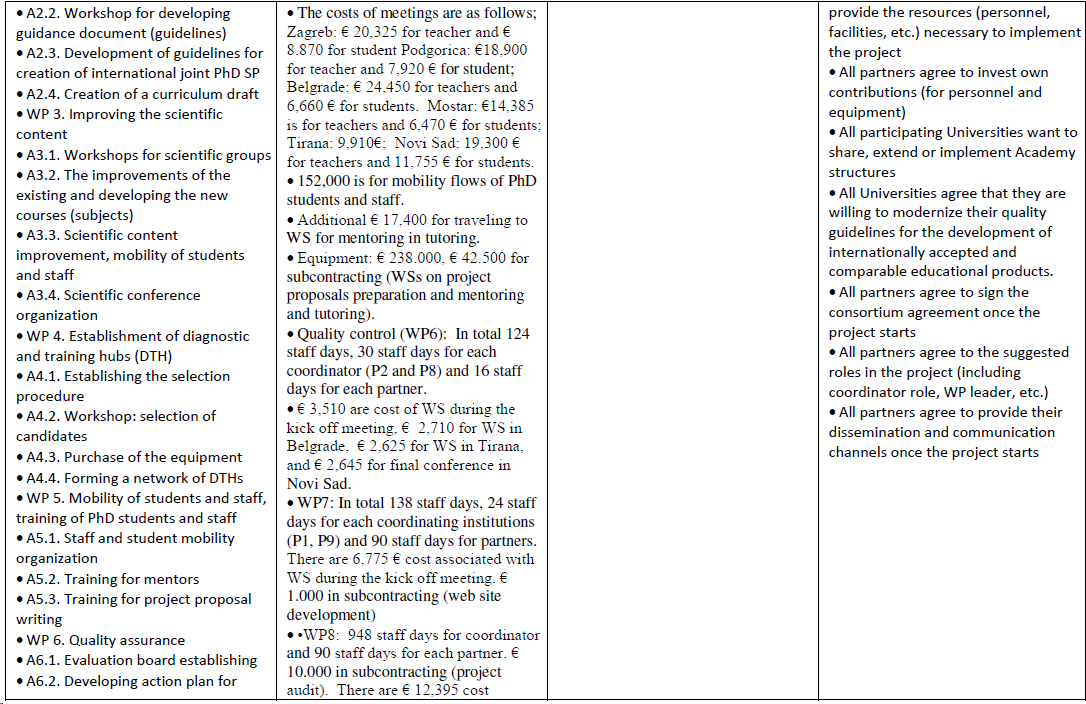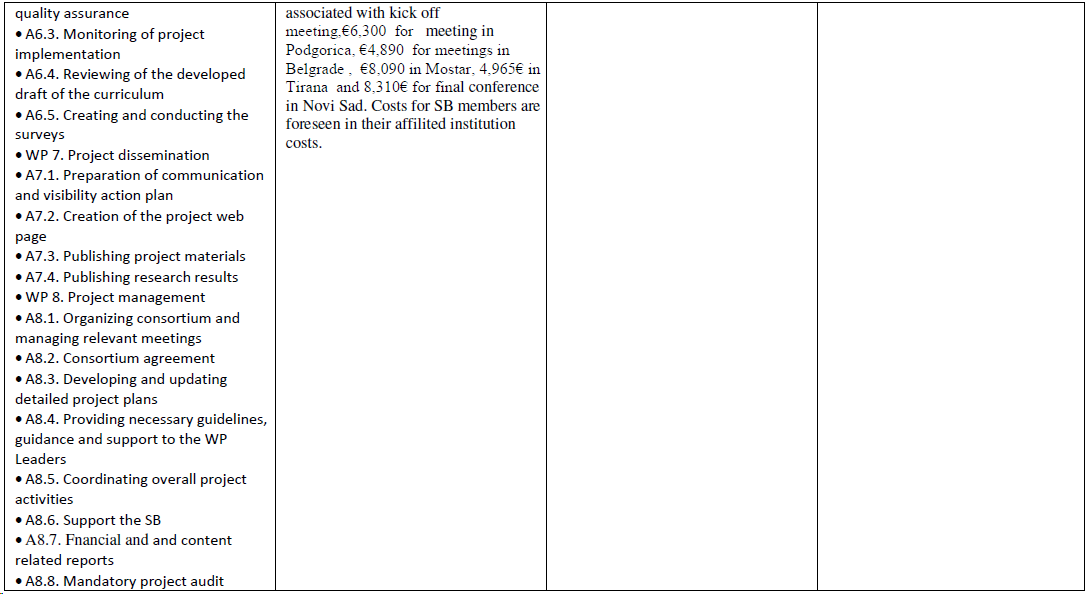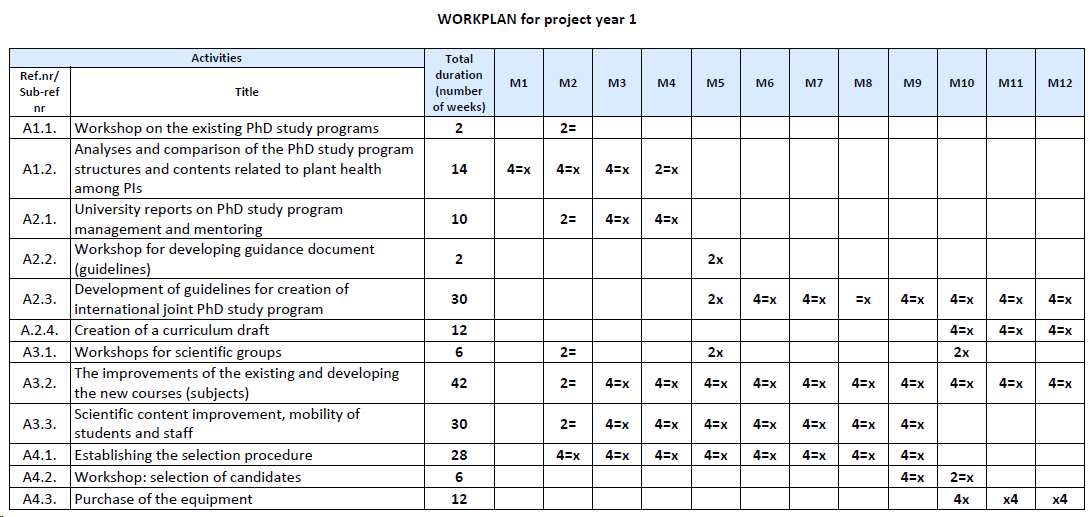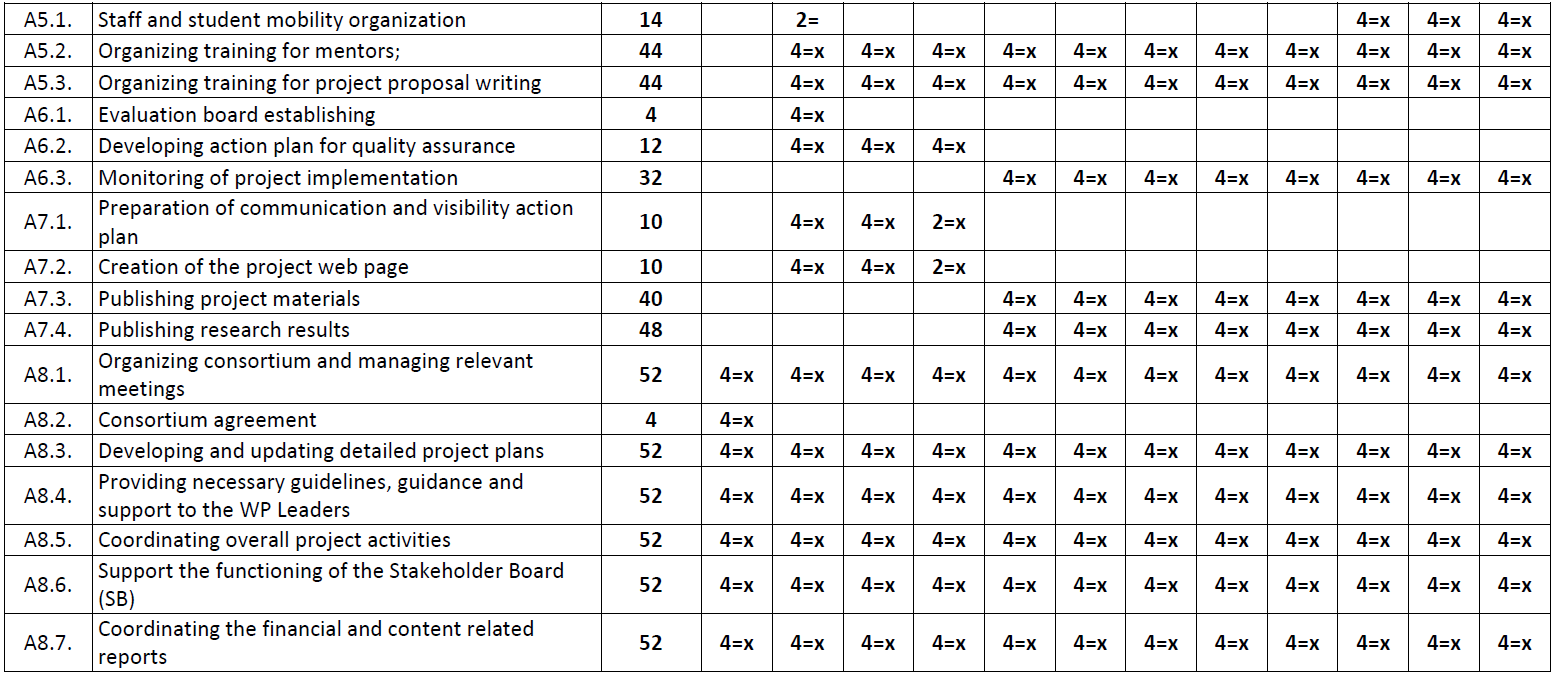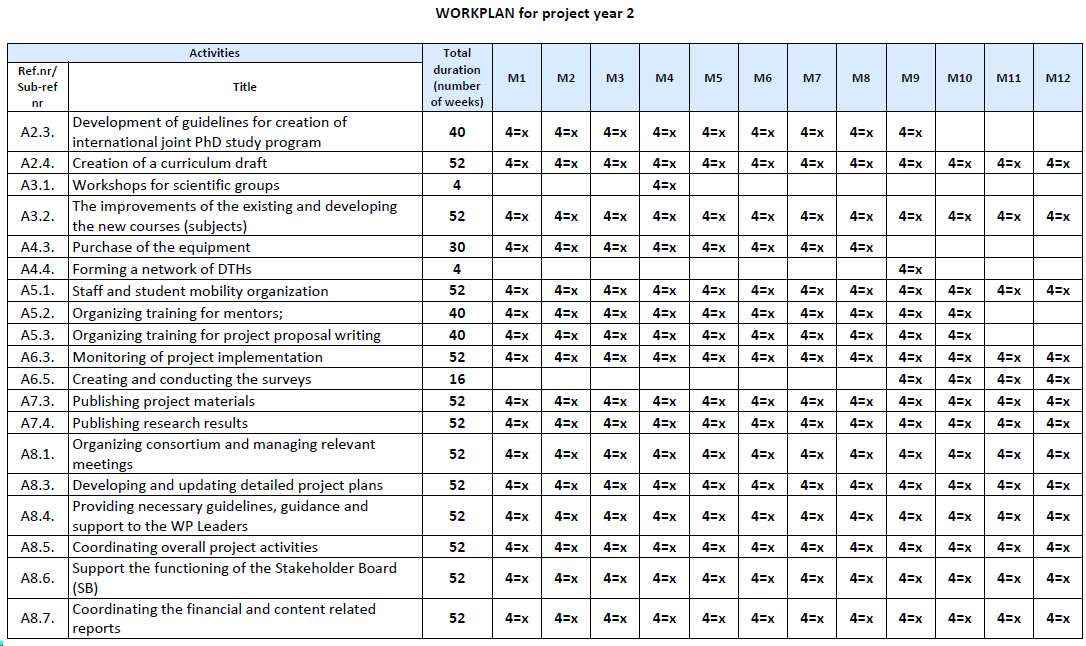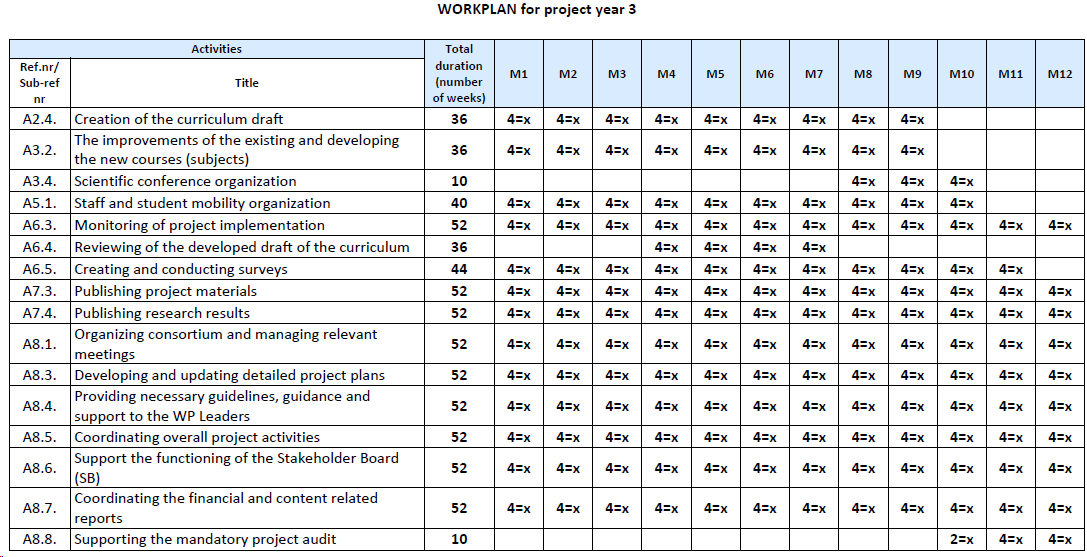About project
| TITLE | Harmonization and Innovation in PhD Study Programs for Plant Health in Sustainable Agriculture |
| ACRONYM | HarISA |
| GRANT HOLDER | University of Zagreb Faculty of Agriculture |
| TOTAL GRANT | 967.614,00 EUR |
| PROJECT LEADER | Prof. Renata Bažok, Ph.D. |
| PROJECT DURATION | 44 months (January 15th 2019 – October 14th 2022) |
PROJECT PARTNERS:
PROJECT SUMMARY:
In today's sustainable agricultural production, comprehensive care for plant health is essential. Apart from modern diagnostic methods, it includes the application of sophisticated plant protection methods based on the latest scientific knowledge. Without the highly educated experts who are well acquainted with the issue of all aspects of plant health in sustainable agricultural production, it is impossible to achieve required goals. The HarISA project (Harmonization and Innovation in PhD Study Programs for Plant Health in Sustainable Agriculture) was approved under the Erasmus+ program in the field of Strengthening Capacities in Higher Education on the European Movement politics and culture (EACEA). This project has the ambition to harmonize and modernize doctoral education in the Western Balkans countries and to create a network of researchers capable of responding to current challenges in plant health. The project aims to provide support for modernization and internationalization of higher education in the field of plant health and to contribute to co-operation between the European Union and the countries of Western Balkans in implementing the European Union's policy on plant health. It also seeks to ensure the acquisition of scientific knowledge and the transfer of skills and competences to achieve sustainable use of pesticides and the application of the major principles of integrated plant protection in agricultural production. The project was submitted by the University of Zagreb, Faculty of Agriculture, in cooperation with partners from the EU countries (Croatia, Italy, Bulgaria and Greece) and countries of the so-called Western Balkans (WBC) (Bosnia and Herzegovina, Serbia, Montenegro and Albania). The project will achieve specific goals such as: harmonize, improve and modernize doctoral programs in the area of plant health among partner universities, to increase the ability of the PhD to respond to global health problems; to develop a common framework and a draft curriculum for an international joint doctoral study in plant health; to foster regional integration in the field of research and education of plant health within the Western Balkan countries and between the countries of the Western Balkans and the EU countries.
SUMMARY OF WORK PACKAGES:
| Work package N° | Type of work package | Title of work package | Start month | End month |
| WP.1 | Preparation | Review of partners PhD SP | 1 | 4 |
| WP.2 | Development | Joint framework for harmonization of PhD SP and development of a curriculum draft | 2 | 42 |
| WP.3 | Development | Improving the scientific content | 2 | 42 |
| WP.4 | Development | Establishment of diagnostic and training hubs (DTH) | 2 | 31 |
| WP.5 | Development | Mobility of students and staff, training of PhD students and staff | 2 | 41 |
| WP.6 | Quality plan | Quality assurance | 2 | 44 |
| WP.7 | Dissemination & Exploitation | Project Dissemination | 2 | 44 |
| WP.8 | Management | Project management | 1 | 44 |
PROJECT BACKGROUND:
Consumers in the EU and beyond are increasingly concerned about the impact of pesticides on the environment and human health. These concerns are reflected in EU’s 6th Environment Action Program, and Thematic Strategy on the Sustainable Use of Pesticides, whose key objectives include substitution of harmful substances by safer alternatives, encouragement of low input/low-pesticide crop cultivation and re-inforce integrated pest management applications. Increasing concerns of consumers about chemical pesticides have resulted in "EU pesticides package" (Regulations 1107/2009/EEC and 1185/2009, Directives 2009/128/EC and 2009/127) which regarded stress upon the environment, residuals in the food chain, human health issues and impact on evolutionary pressure. Moreover, the 7th Environmental Action Program includes an “enabling framework” with four priority objectives to help EU deliver on these goals: better implementation of legislation, better information by improving the knowledge base, more and wiser investment for the environment, and full integration of environmental requirements into other policies.
Consortium members have special interest in taking part in the project as it is a unique opportunity to bring together a wide expertise in the field of plant health doctoral education and research. The project provides a great potential to generate synergies to help overcome the current challenges and build human capacities in plant health in the Western Balkan countries (WBC). All HarISA partner countries are candidates for entering EU. The common challenges for them is to implement EU policy in plant health, and develop and establish all necessary conditions for the application of innovative plant health measures that fits with the principles of sustainable agriculture. The implementation of "EU pesticides package" requires highly educated professionals with deep understanding on this matter. They must be capable to transfer knowledge, skills and competences in the biological, biotechnological and agronomic control means and in applying strategies of pesticide application which can reduce the environmental and human risks.
This project has the ambition of harmonizing and modernizing doctoral education at PIs and creating a network of researchers that is capable to respond to the above mentioned challenges. HEIs will benefit by improving human potential and its success for conduction of competitive research in the field of plant health. At the same time this will ensure preconditions in partner countries to improve productivity and resilience of sustainable agriculture in the context of evolving climate. Finally, it will impact on a range of agricultural production (in chains context) and risk management practices, and will result with safeguarding of biodiversity (particularly near NATURA 2000 natural areas).
Regional and partner country national priority is to improve quality of education and teaching by developing learning and teaching tools, methodologies and pedagogical approaches including learning outcomes and ICT-based practices. HarISA project proposes the modernization of curriculum by developing new and innovative courses and methodologies. Therefore, the aims of the HarISA project are entirely compatible with regional and partner national priorities in the field of education. The same time HarISA covers the field of agriculture which is also defined as national priority by all partner countries as well as for the region of WBCs.
The strategic research agenda and project results of the “C-IPM – Coordinated Integrated Pest management in Europe” ERA-NET was activated to favor exchange and identification of IPM research and development priorities in order to face European challenges of responding to the mandatory implementation of the principles of integrated pest management (IPM). Proposed project is in line with numerous EU founded projects as are PURE-IPM, ENDURE, BIOFECTOR, BIOCOMES, BIOGUARD, Best Pass, XF-ACTORS, API-Tree, EUFRUIT, EMPHASIS, BIOCOMES, etc. All these projects are (or were) research projects related to plant health issues as emerging pest and diseases, sustainable use of pesticides, developing new products and methodologies for pest control.
Until now, all completed and ongoing curricula reform EU projects on plant health topic were focused on undergraduate and graduate programs. The aims were to develop modern teaching contents at the agricultural faculties, to improve the quality and modularization of their curricula to improve the teaching skills of staff or to develop strategic planning management. Some of them aimed to develop and improve Master study programs in plant health (International Joint Master Degree in Plant Medicine and Plant Health project) but no projects and activities are carried out to harmonize the doctoral education neither in agriculture nor in plant health.
LIST OF DELIVERABLES:
| Deliverable / No | Title of deliverable | Type or nature | Delivery Date |
| Work package 1 | |||
| D1.1. | University reports on the PhD SP | Report | 2019-2-10 |
| D1.2. | Workshop on partners PhD SP | Events: Conferences and Seminars | 2019-2-28 |
| D1.3 | Joint analyses of the partners PhD SP | Methodology | 2019-4-30 |
| Work package 2 | |||
| D2.1. | University reports on PhD SP management and mentoring | Report | 2019-4-30 |
| D2.2. | Workshop -action plan | Events: Conferences and Seminars | 2019-6-15 |
| D2.3. | Workshop -curriculum draft | Events: Conferences and Seminars | 2022-03-15 |
| D2.4. | Draft of the curriculum | Report | 2022-05-15 |
| D2.5 | Specific documents for PhD programme accreditation at chosen partners and their submission to the Faculty level | Report | 2022-09-30 |
| Work package 3 | |||
| D3.1. | Workshops organized | Events: Conferences and Seminars | 2020-4-15 |
| D3.2. | Scientific needs identified and research topics for PhD thesis and joint mentorship proposed | Report | 2019-10-15 |
| D3.3. | The improvements of the existing courses | Learning resources | 2022-05-15 |
| D3.4. | New subjects related to plant health | Learning resources | 2022-05-15 |
| D3.5. | Jointly prepared teaching material | Learning resources | 2021-10-15 |
| D3.6. | Scientific conference organization | Events: Conferences and Seminars | 2022-09-30 |
| Work package 4 | |||
| D4.1. | Selection criteria and evaluation procedure for DTH | Report | 2019-5-15 |
| D4.2. | Workshop- selection of candidates | Events: Conferences and Seminars | 2019-10-15 |
| D4.3. | Procurement of the equipment | Other products | 2021-10-30 |
| D4.4. | Agreement between DTHs | Other products | 2020-03-15 |
| Work package 5 | |||
| D5.1. | Mobility plan for PhD students and staff | Methodology | 2020-11-15 |
| D5.2. | Student and staff mobility implemented | Report | 2022-08-15 |
| D5.3. | Trainings for mentors | Training | 2021-01-15 |
| D5.4. | Mobility documents developed | Other products | 2021-01-15 |
| Work package 6 | |||
| D6.1. | Evaluation Board (EB) | Other products | 2019-03-15 |
| D6.2. | Action plan for quality assurance | Other products | 2019-05-15 |
| D6.3. | Reports on mid- term and final monitoring on project implementation | Report | 2020-07-15 2022-10-14 |
| D6.4. | Review of the draft of the curriculum | Report | 2022-10-15 |
| D6.5. | Survey with students and staff after mobility | Other products | 2022-08-14 |
| Work package 7 | |||
| D7.1. | Communication and visibility plan | Report | 2019-4-30 |
| D7.2. | Web page and social media | Other products | 2019-4-30 |
| D7.3. | Project materials | Other products | 2022-10-14 |
| D7.4. | Research results | Other products | 2022-10-14 |
| Work package 8 | |||
| D8.1. | MB meetings organized, meeting minutes | Report | 2019-2-15 2019-5-15 2019-10-15 2020-3-15 2020-10-15 2021-10-15 |
| D8.2. | Consortium agreement | Other products | 2019-2-15 2022-10-15 |
| D8.3. | Project management plan developed | Report | 2019-2-15 |
| D8.4. | Stakeholder board functioning | Other products | 2019-2-15 2020-10-15 2021-10-15 |
| D8.5. | Interim and final narrative and financial reports | Report | 2020-7-15 2022-10-15 |
